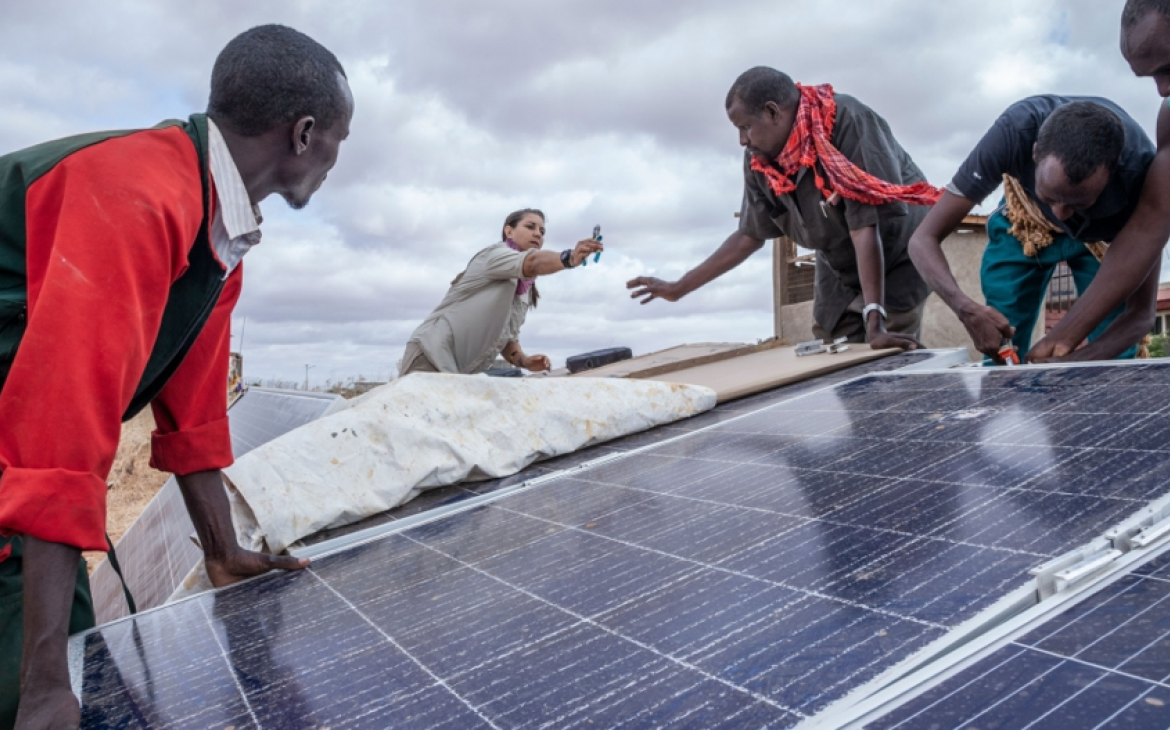The sustainable energy pillar at the Division for Peace in UNITAR hosts the coordination unit for Global Platform for Action on Sustainable Energy in Displacement Settings (GPA). With a consortium of 16 United Nations and International Non-Governmental Organizations, the goal of the GPA is to ensure that the displaced people around the world have access to affordable, reliable, sustainable and modern energy. Recently, the GPA in collaboration with the United Nations Development Programme and NORCAP has developed a Multi-Partner Trust Fund (MPTF) for Decarbonising Humanitarian Energy (DHE) that aims to replace diesel generators in humanitarian operations. The programme has received generous seed funding of USD 22 million from the German Federal Foreign Office to support humanitarian actors solarise existing diesel-based energy systems in five countries in the Sahel, with an initial focus on Nigeria and Niger. The programme will reduce the costs and greenhouse gas emissions associated with delivering critical humanitarian assistance. This multi-year support for scaling up sustainable energy solutions for organisations serving displaced people and host communities aims at:
- Reducing carbon emissions by reducing energy consumption through energy efficient appliances (such as new air conditions and lights);
- Providing all humanitarian actors within a target country with options to solarise their energy infrastructure;
- Exploring options to link the decarbonisation activities of humanitarian actors with energy access for displaced and host communities.
The majority of electricity supplied for organisations in displacement contexts comes from diesel generators – estimated by the GPA Coordination Unit to cost over $100 million and emit more that 200,000 tonnes of CO2 globally. This presents a huge opportunity for sustainable energy solutions, but these organisations often lack the technical capacity, funding, and local market environments to implement them.
The DHE MPTF uses energy efficiency measures to first decrease electricity consumption, and then uses renewable power to offset the remaining usage on fossil fuels, to reduce both costs and GHG emissions.
Under the DHE MPTF the consortium deploys energy experts to provide technical assistance, develop business cases for project sites and organisations, and finance the implementation of sustainable energy solutions. New de-risking mechanisms, contractual frameworks and green financing opportunities supports the private sector in delivering viable, long-term solutions for organisations – and in extending the benefits of electricity access to affected communities directly.
This generous funding from the German Federal Foreign Office provides crucial support for scaling up sustainable energy in the Sahel region and represents a major step towards achieving SDG 7 in displacement settings worldwide.
For more information, please visit the GPA website.


